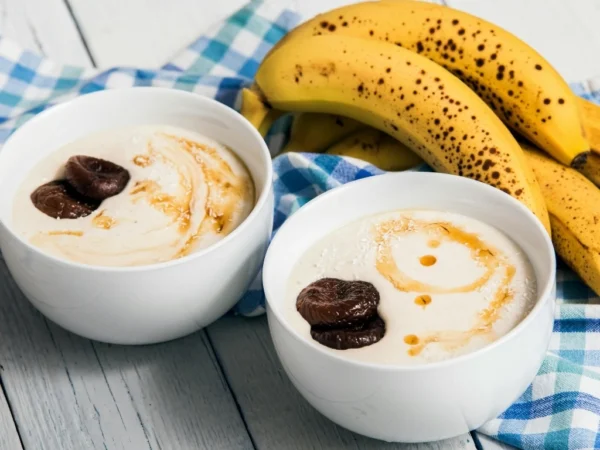Have you ever heard about banana peppers? If you still haven’t, they are a mild, tangy chili pepper that often has a yellow-green color. These can add that much-needed zing to a dish without being too spicy. But if you are wondering if banana peppers are low in FODMAP and are okay to be consumed by those with digestive issues, keep reading to find out.
Are Banana Peppers Low FODMAP?
The answer is yes. Banana peppers, also known as pepperoncini, are low FODMAP ingredients. They belong to the same capsicum family as bell peppers (Capsicum annum) and may be an excellent addition to a well-balanced diet. [1] A low FODMAP diet could reduce IBS symptoms, as high FODMAP ingredients can cause gastrointestinal distress. However, this should be done under the supervision of a doctor. [2] [3]

Comparing Banana Peppers and Other Peppers
Banana peppers are mild, with a Scoville rating of 0 to 500, whereas jalapeños range from 2,500 to 8,000. Poblano peppers are around 1,000 to 2,000, and Habanero peppers are around 100,000 to 350,000, which is way hotter than the other three combined. Banana peppers have a slight sweetness that goes well with the hotter peppers’ spiciness and bell peppers’ sweetness.
Are Banana Peppers Inflammatory?
No, in fact, banana peppers can actually reduce inflammation. [4] According to Fattori, capsaicin, a compound in pepper, is an anti-inflammatory agent. [5] Capsaicin blocks some proteins, including IL-6, TNF-α, and iNOS. This inhibits immune cells from activating the NF-κB pathway, reducing the levels of these inflammatory proteins. [6] The antioxidants and phytochemicals in banana peppers also reduce the inflammation linked to conditions such as heart disease, diabetes, and arthritis. Intake of these foods helps alleviate the symptoms of these chronic diseases. [7]
Are Banana Peppers a Laxative?
Banana peppers are not laxatives but contain some fiber (1.5 grams per 100 grams), which helps digest food. Fiber ensures your bowel movements are regular and prevents constipation at the same time. Since they are low in calories and fat, they fill you up without too much caloric intake, which helps control and maintain your weight.
Are Banana Peppers Keto Friendly?
Yes, banana peppers are keto-friendly. It’s low in calories, at only 27 kcal per 100 grams, and contains only 6.5 grams of carbohydrates. It also has 1.5 grams of fiber, which helps you feel full for much longer, which helps you not overeat. They also contain many essential nutrients like vitamin C, along with vitamins A, B6, folate, potassium, and manganese.
Can Banana Peppers Upset Your Stomach?
Yes, banana peppers could upset your stomach if you take too much. As the saying goes, “Everything should be in moderation.” It should be applied here too. Banana peppers contain capsaicin, which cannot be fully digested, and it may pass through the gut to trigger pain receptors and bring discomfort, such as painful bowel movements. [8] Large doses of capsaicin also happen to weaken the intestinal barrier and increase gut permeability. [9] Though moderate amounts are usually not a problem, high levels of capsaicin taken over time may cause some gastrointestinal discomfort and interact with digestion. [10]
Can You Eat Banana Peppers Raw?
Banana peppers can be eaten raw. Not only are these banana peppers very commonly pickled, but if you eat them fresh, they have a relatively mild, crunchy texture. You can also use it in pizzas, nachos, or even cheese and charcuterie boards.
How to Include Banana Peppers in Your Meals?
I would recommend sauteing banana peppers with garlic and onions in olive oil. You can also mix in cherry tomatoes and then top it off with Parmesan cheese for a delicious pasta dish. I would also recommend filling these peppers with rice, corn, and chorizo and baking or frying them. Pickling banana peppers also sounds great. And I think they would be just amazing with a sandwich or salad. I’d even toss in some raw to-fresh salsa for some added crunch.

Conclusion
If you don’t know if you can handle spicy food, then banana peppers are a good pick. It adds a mild flavor to your dishes and contains fewer calories with tons of essential nutrients. Start by tasting one or adding small portions to a dish, and see how you enjoy them. Adding banana peppers to your meals would be a delicious way to improve your health without it being too spicy. Try it out and maybe you will also enjoy it!
References
- Britannica, T. Editors of Encyclopaedia (2024, August 21). bell pepper. Encyclopedia Britannica. https://www.britannica.com/plant/bell-pepper
- McNamara, L. (2018, September 3). Eating and IBS symptoms. Monash University. https://monashfodmap.com/blog/eating-and-ibs-symptoms/
- Bertin, L., Zanconato, M., Crepaldi, M., Marasco, G., Cremon, C., Barbara, G., Barberio, B., Zingone, F., & Savarino, E. V. (2024). The role of the FODMAP diet in IBS. Nutrients, 16(3), 370. https://www.mdpi.com/2072-6643/16/3/370
- Minich D. M. (2019). A Review of the Science of Colorful, Plant-Based Food and Practical Strategies for “Eating the Rainbow”. Journal of nutrition and metabolism, 2019, 2125070. https://onlinelibrary.wiley.com/doi/10.1155/2019/2125070
- Fattori, V. (2016). Capsaicin: Current understanding of its mechanisms and therapeutic potential. National Institutes of Health. https://www.ncbi.nlm.nih.gov/pmc/articles/PMC6273101/
- Li, J., Wang, H., Zhang, L., An, N., Ni, W., Gao, Q., & Yu, Y. (2021). Capsaicin affects macrophage anti-inflammatory activity via the MAPK and NF-κB signaling pathways. https://www.imrpress.com/journal/IJVNR/93/4/10.1024/0300-9831/a000721
- Bissell, Melvin. (2024). Are Banana Peppers Good for You?. Retrieved from: https://www.researchgate.net/publication/382825165_Are_Banana_Peppers_Good_for_You
- Metalonis, J. (2022, June 23). Spicy food challenges: Harmful or healthy? University Hospitals. https://www.uhhospitals.org/blog/articles/2022/06/spicy-food-challenges-harmful-or-healthy
- Yiwei Xiang et. al, Beneficial effects of dietary capsaicin in gastrointestinal health and disease, Experimental Cell Research, Volume 417, Issue 2, 2022, 113227, ISSN 0014-4827, https://www.sciencedirect.com/science/article/pii/S0014482722002208?via%3Dihub
- Rosca, A. E., Iesanu, M. I., Zahiu, C. D. M., Voiculescu, S. E., Paslaru, A. C., & Zagrean, A.-M. (2020). Capsaicin and gut microbiota in health and disease. Molecules, 25(23), 5681. https://www.mdpi.com/1420-3049/25/23/5681













